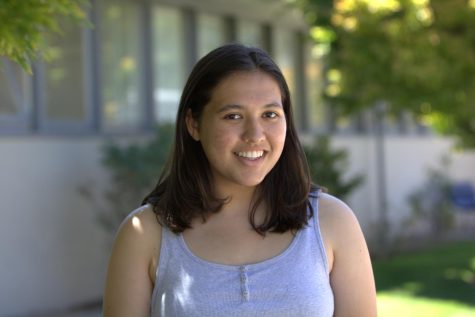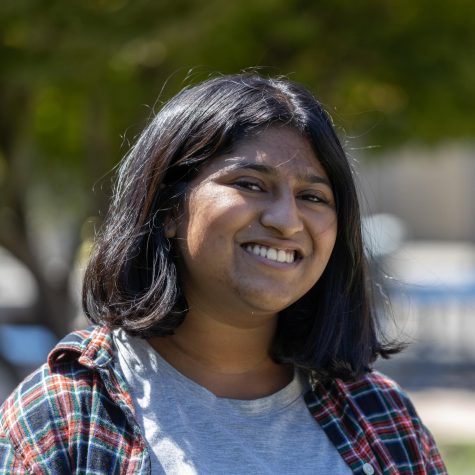Senior Margaret Capetz’s cookbook makes sustainability delicious
To adapt to the pandemic last school year, AP English Language and Composition students were assigned a “Quarantine Project” to explore a new activity or hobby at home, document the process and reflect on it. Many students tried some variation of cooking or baking, and senior Margaret Capetz was no different. But after the project ended, she took it one step further by writing and publishing her sustainable plant-based cookbook “Carbon Conscious Cooking” on Sunday, October 18.
What started as an assignment for school quickly turned into much more for Margaret as she began improvising with recipes and posting them on Medium, a popular blogging site. Even after her Quarantine Project had been turned in and school was over, Margaret continued growing her reinvigorated love for cooking, combining it with her passion for sustainability.
“I can protest climate strikes, I can advocate to the city government — there’s so many different ways to [raise awareness about climate change],” Margaret said. “But I really like cooking because it’s something I can do every day. It’s a small contribution that has become part of my daily lifestyle,” “Even though it may seem small, in the long run, especially with scaling my impact, it can make a difference.”
Last summer, Margaret cooked regularly for her family while trying and toying with vegetarian and plant-based recipes, largely inspired by The New York Times’ cooking section. By the time her senior year began, Margaret had accumulated many favorites that she had adjusted to suit her sustainable lifestyle, and hoped to scale her impact by encouraging people in her community to shift to a vegetarian diet.
“People might think that not eating meat does not create much of an impact, but if you look at the numbers, it really does,” Margaret said. “And it’s such an easy way to switch up your lifestyle: You don’t need to invest in solar panels or an electric vehicle; you can just switch up your grocery list.”
Determined to prove her point, each of Margaret’s recipes in her cookbook are accompanied by a “Carbon Footprint” section, which compares the footprints of certain ingredients and the alternatives she uses in terms of miles driven. For example: “The footprint of chicken, a regular salad add-in, is equivalent to a car driving 16 miles, while that of chickpeas is equivalent to 1.5 miles. That’s 14.5 miles less.”
Drawing inspiration and statistics from BBC’s carbon calculator, among other sources, Margaret realized that contextualizing carbon footprint in something most people are familiar with, miles driven, would be more effective then tonnes of carbon dioxide.
“With so many things, I feel that as a consumer, those numbers become meaningless,” she said.
Another thoughtful stylistic choice in her cookbook is the seemingly arbitrary spacing which divides the titles of sections like “Appetizers” and “Mains.” Margaret explained the purpose of those “surprising” spaces is to give readers an opportunity to pause, go back, read it again, “think more deeply and actually consider the title.”
Once they do, Margaret hopes that readers will realize that “sustainable cooking is not so hard,” then improvise with the recipes like she does. Of all the recipes, Margaret’s favorite is the Chickenless Adobo, a Filipino dish that incorporates two of her favorite ingredients: tofu and vinegar. Her favorite parts of the whole process were seeing months of hard work come together and receiving feedback.
“When I send the book to get feedback from other people, when they read through the whole thing, that means a lot to me because I know it’s very long,” she said. “That’s just heartwarming.”
To maximize her cookbook’s audience and raise awareness about sustainable cooking, Margaret published her cookbook on the internet. Of the many people who supported her through this journey to publication, many were Margaret’s friends from the Los Altos High School Green Team, which she dedicated the cookbook to.
“When I started becoming more passionate about sustainability, Green Team really gave me an avenue to express that passion, and also reach out to the school community, the Los Altos community and beyond,” Margaret said. “It has given me so many opportunities, shown me ways to approach sustainability and inspired me with all the valiant efforts of students and other individuals.”
To read Margaret’s cookbook for free, click here.






